sites of memory
꩜ a two-part reflection on revisiting my childhood home ✢ ross king's reading bangkok + colonialism in urban geography ✢ musings on 'authentic' travel ꩜
| 1339 words ꩜ 7 mins reading time |
the day i landed in my childhood home of bangkok on november 19th, pluto entered aquarius, where it will remain until 2043.
the next morning over breakfast with my parents at the W hotel, a luxury hotel chain purporting a ‘curatorial hand’ over experiential travel, i scrolled mindlessly through the monsoon of square posts on my ig feed before stopping at alice sparkly kat:


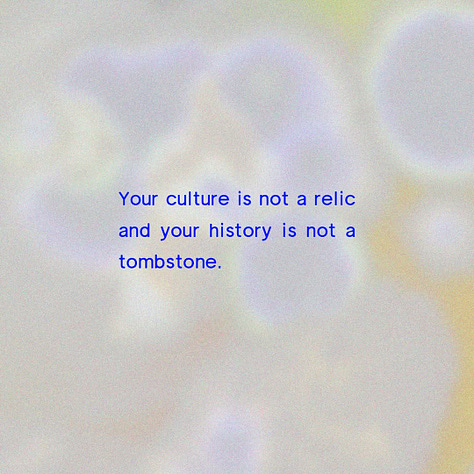
Remember that
Authenticity is a colonial invention
You have the duty to seek a living connection to your own culture
Your culture is not a relic and your history is not a tombstone
1.0 remembering
some memories act as a glass splinter embedded in a finger that your body has learnt to encapsulate under tissue. time passes in the form of a granuloma. it marks the surface of your skin, visible to passers-by, and they ask:
“what was it like to grow up in bangkok?”
a well-meaning curiosity, often subtly founded on questions of authentic experiences.
i have spent my entire adult life dreaming of this homecoming. evenings spent saving pins on a google maps list of highlighted attractions. to be fully transparent, i am not thai. there isn’t a trickle of ‘biological’ thai-ness in me. but still, i needed to rid my skin of this fragment, i needed the irritant to be examined, because the city i caressed with my hands in the warm smog of youth exists to no one else. watching it from afar, it barely even exists to me.
what happens when we mould our perception of a place based on someone else’s? what happens when we reduce geography to aesthetics and consumption?
2.0 a colonial invention
in rina sawayama’s tokyo love hotel, the japanese-british singer speaks of witnessing the disneyland-ification of her home by western tourists.
[Verse 2]
I know there's nothing that I could say
That hasn't already been said
You got that neon lights, Golden Gai
Falling for a stereotype
Has it all gone to your head?[Pre-Chorus 2]
'Cause they don't know you like I know you, no they don't
Use you for one night and then away they go
All that love for you is simply just for show
i witnessed this two-fold: first, pre-departure, through my phone screen and the compounding assumptions in interactions prodding you for cultural background. then again, and again, and again in the month i spent in this country, moulded by the monarchy and tourist authorities.
2.1 constructing ‘authenticity’
what is the authentic and realest version of any city? who gets to decide the best way to experience a place?
is it the checklist of Must See Attractions? the deluge of ig stories from your friend that’s been overseas? is it from a content creator whose voice you trust to curate your experience?
ross king’s reading bangkok (2011), a study on urban geography and development, dentangles five levels of colonising principles in the city:
the illusionary nature of the country’s state mythologies through conquest (go off siam & ayutthaya)
europeanisation through trade
modernisation through consumer culture (don’t we love sukhumvit and siam square)
the destruction of slums by the canals,
and epistemic colonisation in thai universities.
how can one ever experience the real version of a place on a holiday, when that reality is always contested?
king (2011) traces the logic of the monarchy’s “ordering principle”: an alternate reality of images obfuscating the daily disorder, chaos, and injustices.
these symbols are rooted in memory and nostalgia, a lieux de mémoire, or realms/sites of memory.
[So] with the rise of modernism and its attendant traits of globalisation, mediatisation, democratisation and massification, modern media is substituted for collective memory. What we have now is not lived memory, but reconstructed history. To compensate for this lack, sites of memory have arisen.
it seems like most sites presented to us, as visitors, reverb the five colonising principles. they build on the state and religious myth of a divinely-selected monarchy spanning centuries, through attractions like the grand palace and other royal temples. we stay in beautiful hotels with our families in the city’s wall street district— you may even have been here yourself for a work trip. there are contemporary rooftop bars and degustation menus mirroring melbourne/narrm, new york, and copenhagen. we cruise on sunset ships down the chao praya.
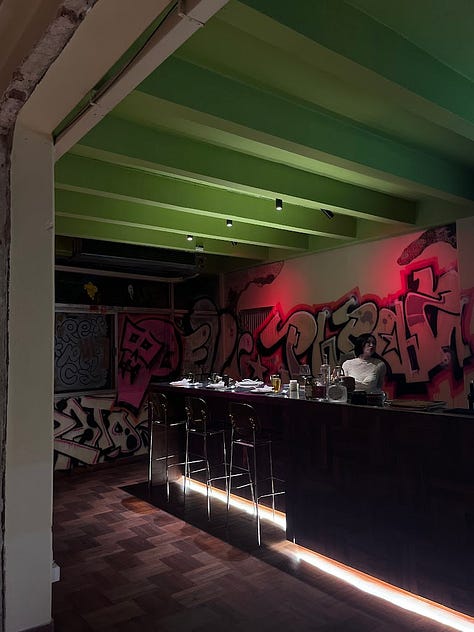

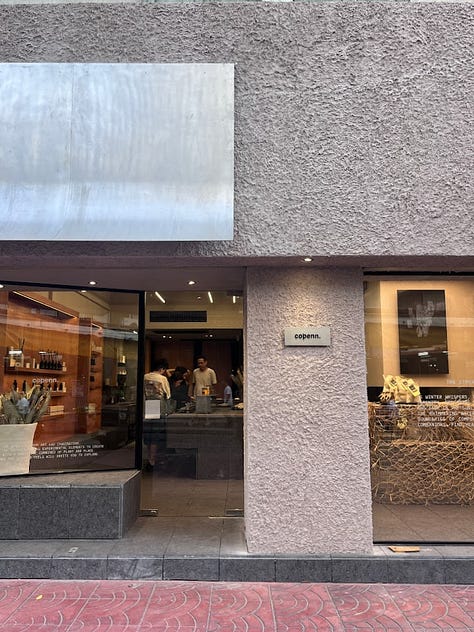
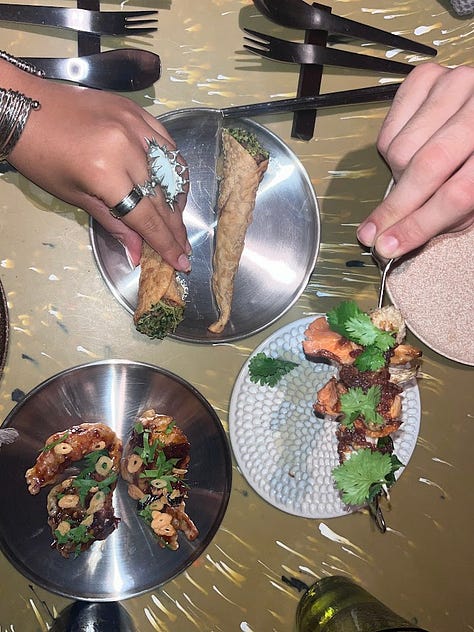

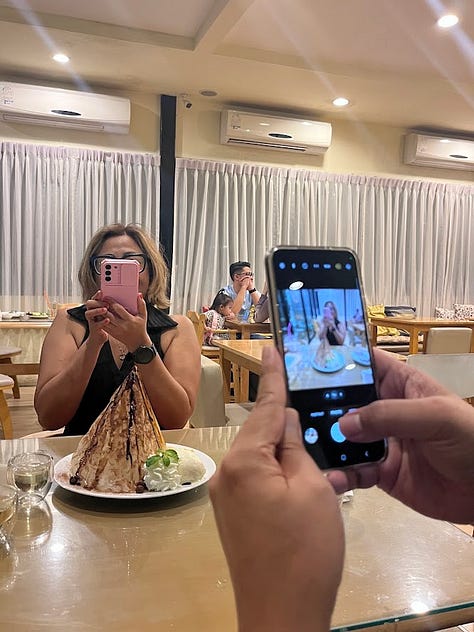
the production of knowledge and an epistemology inherited from the english language also underpins the western imagination of this city. it was also passed down to me, through an education in a private, expat-centred international school, and later on through my moving to australia.
manas chitakasem and andrew turto’s thai constructions of knowledge (1991) warns us about these inherited ideas and our “structuralist attraction to oppositions or dichotomies.” when we travel, we often come across dichotomies like off-the-beaten-track/touristy, traditional/modern, and calm/chaotic, using these to categorise what type of experience we would like to have, and where we would like to go.
instead, they put forward multivalence, a “crosshatch of discourse” to experience the country. there is no singular understanding of ‘thai-ness.” like in every traditional body of knowledge, they are “fragmented, incomplete, and heterogenous.”
the question reverbs: “what was it like to grow up in bangkok?” — but maybe the more pertinent question is: what was it like to be back?
where are my sites of memory? whose symbols and images did they uphold? and what dichotomous imagination did i inhabit?
2.2 constructing memories
all i remember were weekends spent in a cycle of malls. the local one by my family’s apartment in bangkapi, then as you get older, you get to graduate to the nicer ones. in the late 2000s, this was at the esplanade, a mall in ratchadaphisek with an ice-skating rink my boyfriend and his friends liked to loiter around. an upmarket, private international school equivalent of the neighbourhood skate park.
once, my best friend invited me to hang out at the queen sirikit convention centre, where her mum’s handbag business held a vendor site at an artisan trade show. we played hide and seek in empty conference halls and chased each other in the back corridors. on rare occasions, i would tag along with schoolmates to the more glittery shopping complexes around siam square— a social offering mostly reserved for tourists or locals that can afford to live in the inner city.
in bangkok, my sites of memory were always commercial and consumer-driven. it seemed like there was nothing else to do in this city. there was little space to learn how to ride a bike as a child.
you walk around a mall, you inspect knick-knacks at a retail kiosk and briefly consider an impulse purchase, you pick a restaurant with hot pot or a shabu buffet, then you do it again the next weekend.
last year, through a late-night scroll impassioned by nostalgia, i came across the urban hell subreddit. i was enamoured by the vision of concrete and twisted wires, shocked that other people would ever think to stop to photograph and examine them like i did when i was a kid. at risk of falling into the dichotomous trap laid out before, everything i knew about this city was chaotic and modern. the outside world was baked in concrete, a leviathan, with overpasses as arms.
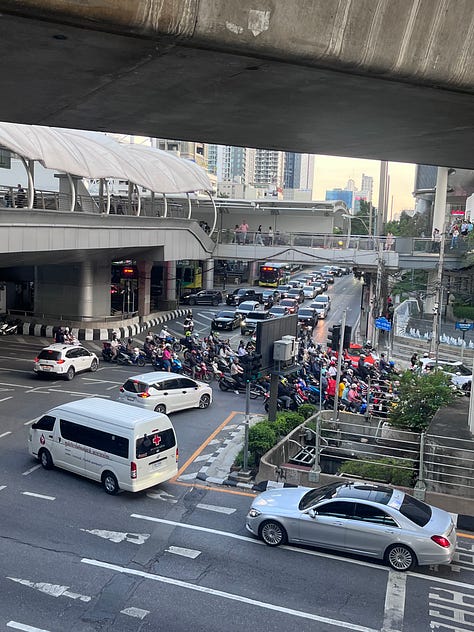
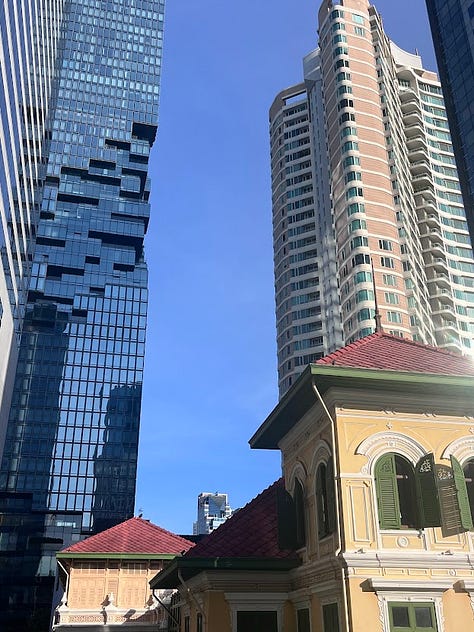
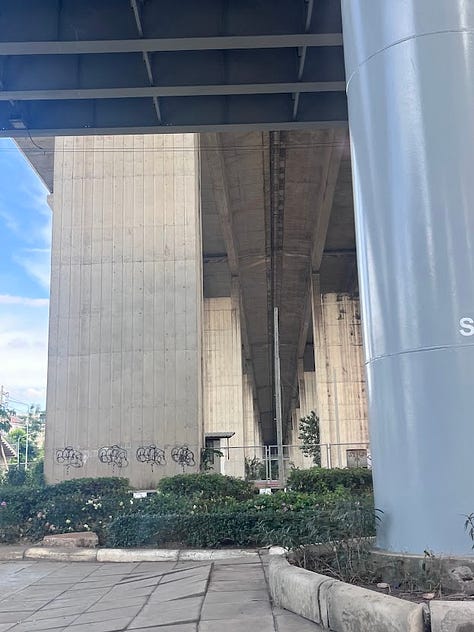
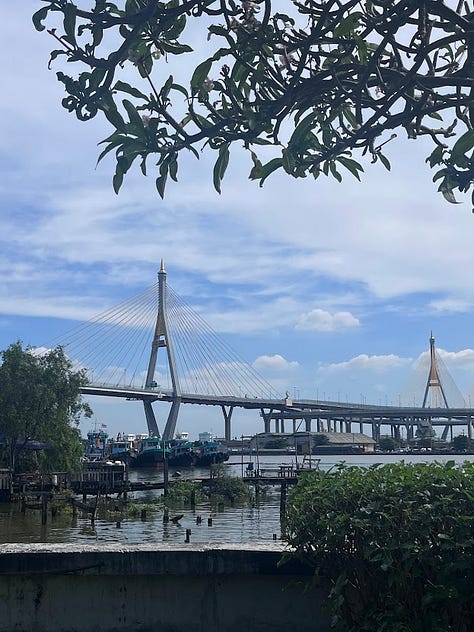
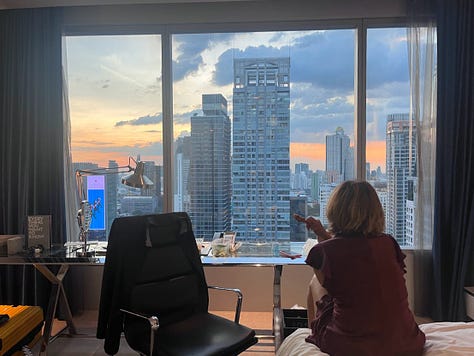
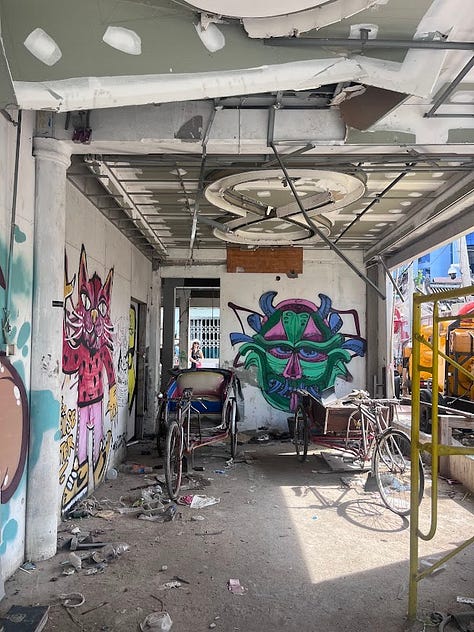
this is what i knew of the city. in the body of a pre-teen in a metropolis, these were the sites you had access to.
hiya! thank you so much for reading my first entry :)
i had to quickly get this out of my drafts before it gathers dust forever as the momentum stops. it was v v v cathartic to write. feel free to put your email down to get part 2 right in your inbox <3 and whatever musings may come after!






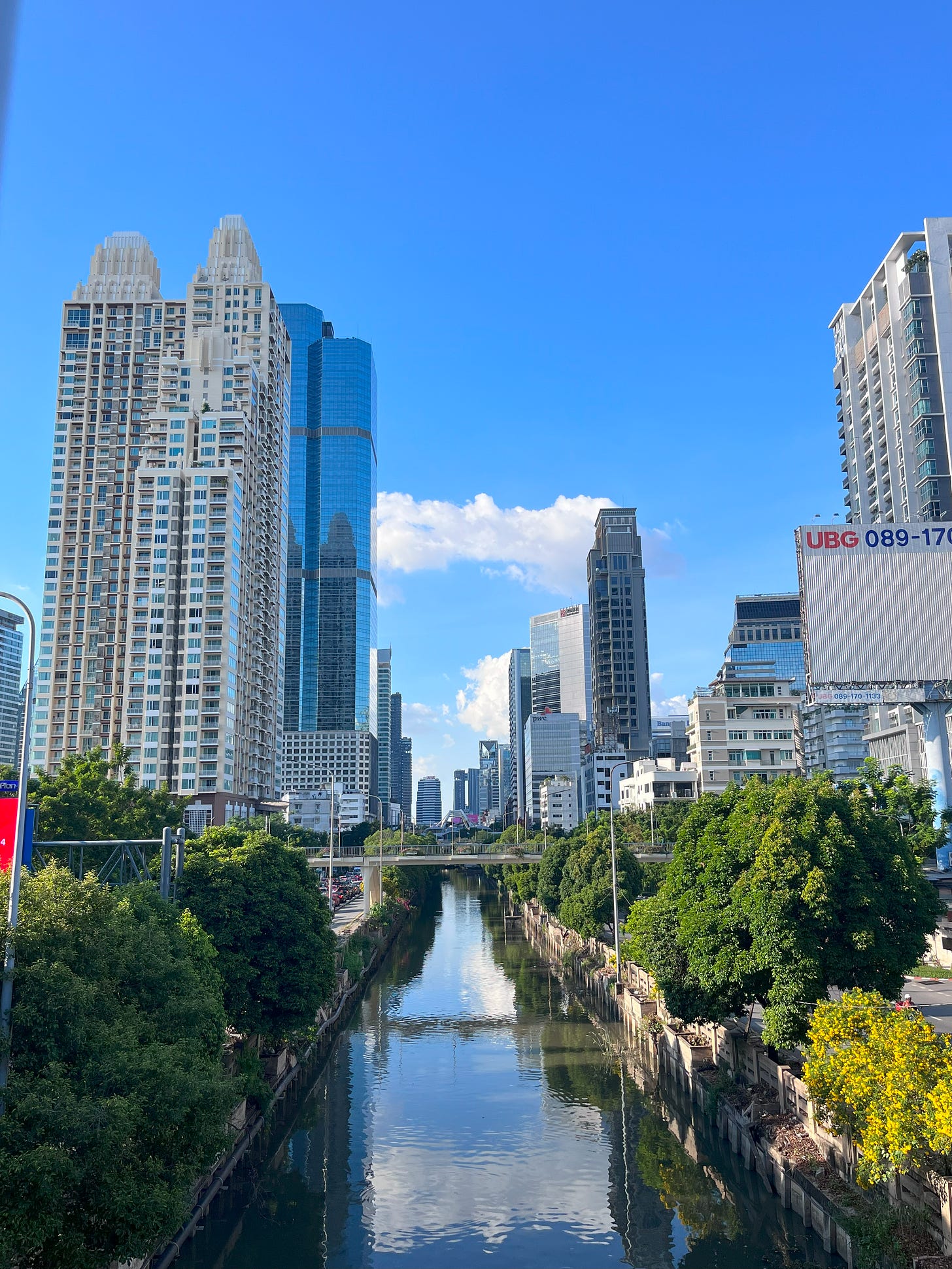



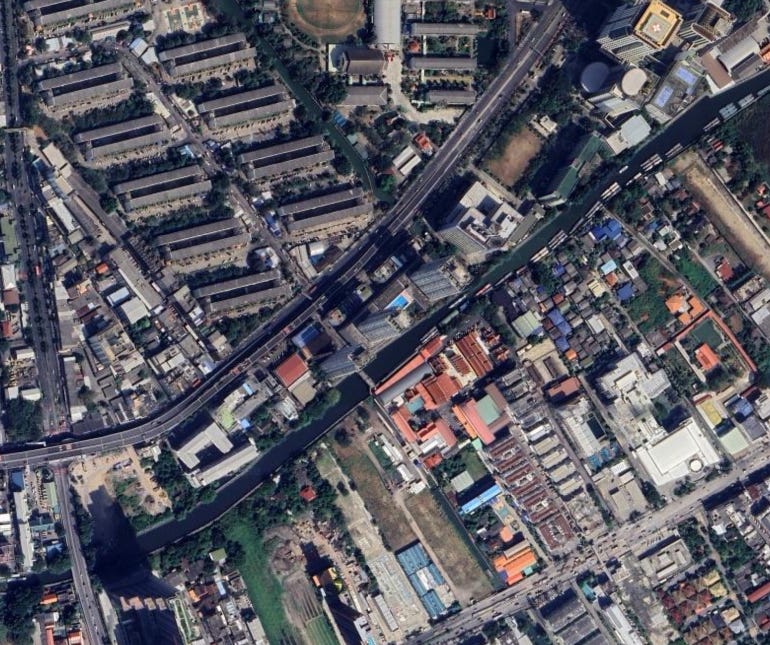

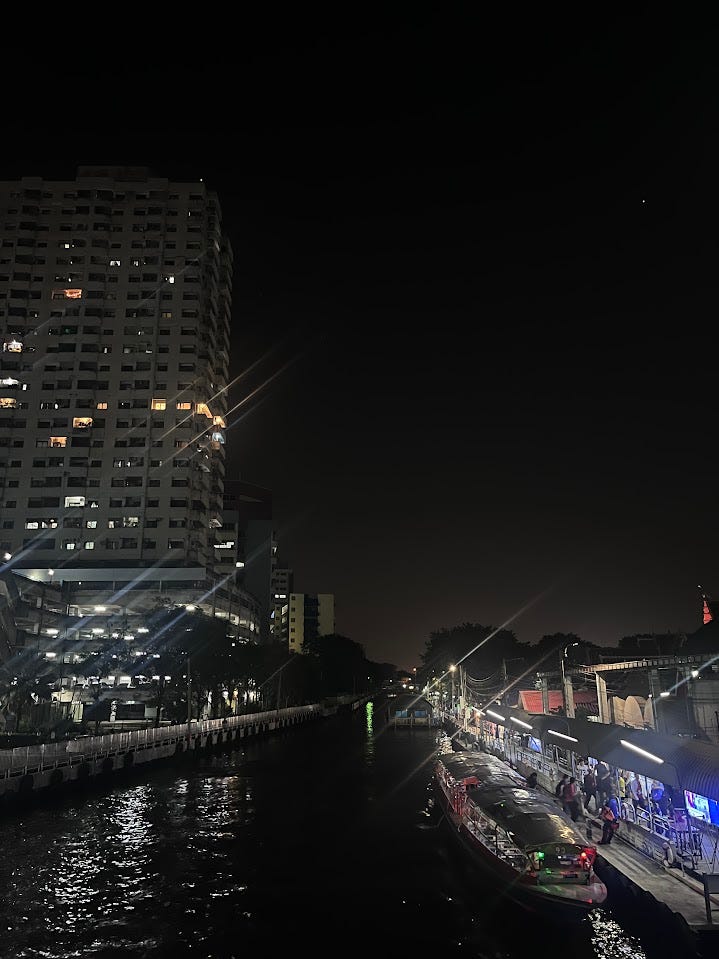

LOOOOOOVE THIS